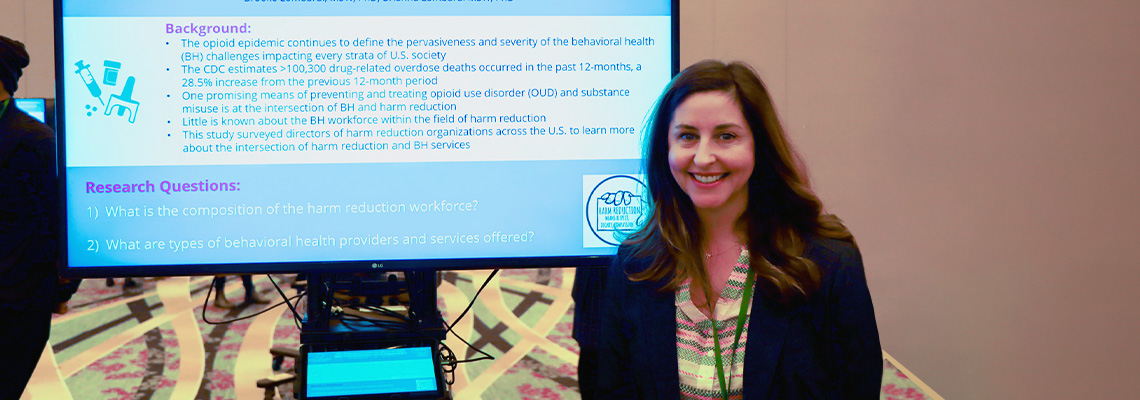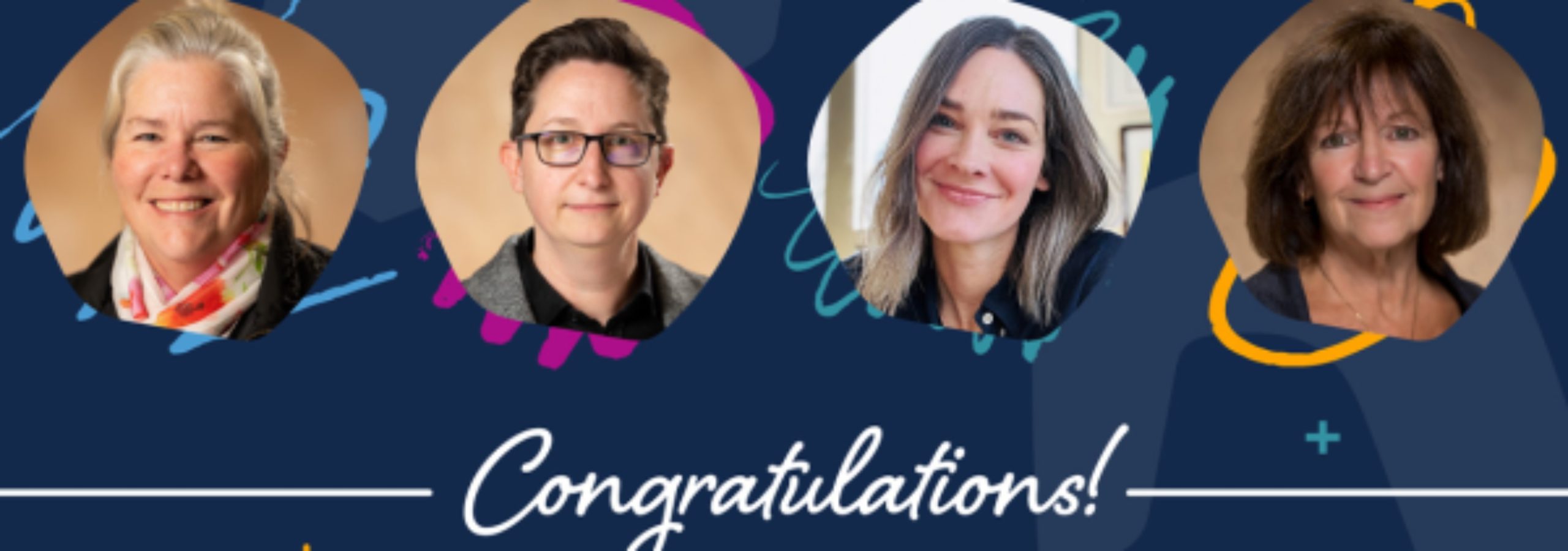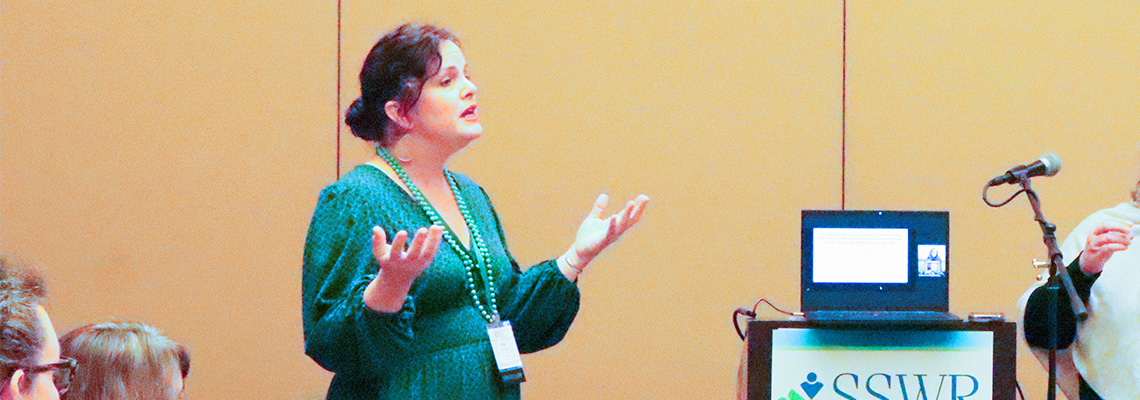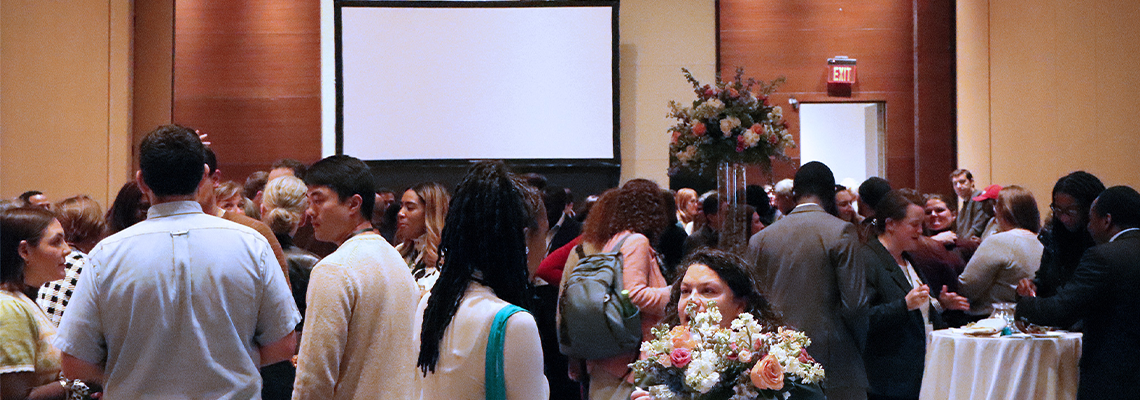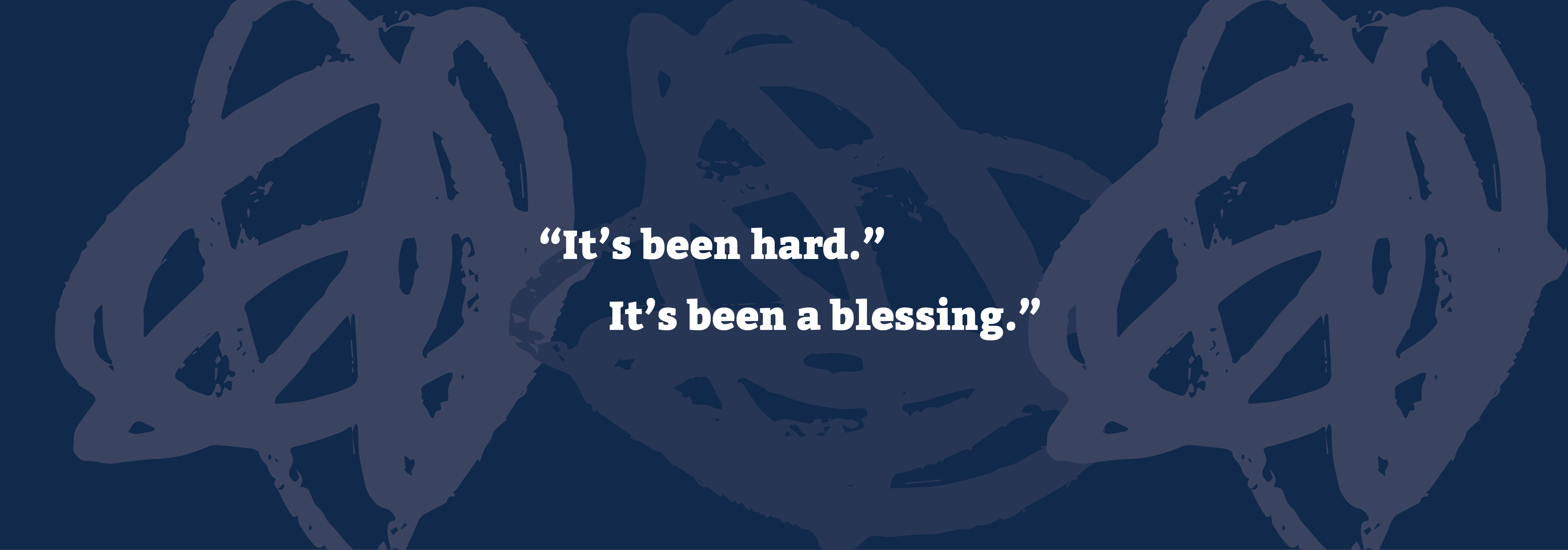by Matthew Smith
When most of the public envision social workers, they may not think of them helping clients plan their financial futures.
But economic resources are necessary to meet basic needs and without reliable access to resources, individuals face risks that can reduce their ability to care for themselves and their families.
At the 2024 Society for Social Work and Research Conference, University of North Carolina at Chapel Hill School of Social Work Associate Professor and Wallace Kuralt Early Career Distinguished Scholar David Ansong led a symposium that introduced the Financial Capability and Asset Building in Africa (FCAB Africa) partnership and discussed issues related to financial capability, wealth creation and asset building in sub-Saharan Africa.
Presentations included discussions on financial literacy, women’s participation in savings groups, and bringing the skills to be financially competent into the social work curriculum at an undergraduate and master’s level. Ansong’s presentation provided an overview of efforts to co-develop localized social work training programs that equip faculty and social work practitioners with finance-related competencies to share with their students and clients.
“Social workers have always cared about issues around financial security and economic well-being, particularly for the socially vulnerable members of society,” Ansong said. “This dedicated focus on addressing financial insecurity and economic hardship is exemplified in two of the 14 Grand Challenges for Social Work, particularly building financial capability and assets for all and reducing extreme economic inequality.”
Parts of the sub-Saharan African region saw heightened financial insecurity and poverty levels after COVID-19. Vulnerable populations in the region are less likely to have access to financial guidance services, including education and coaching, with nearly 70% of households not having a member with a bank account.
The FCAB Africa partnership pulls diverse researchers, human service providers and financial service providers together to improve financial stability and security of these vulnerable populations. Social work faculty and practitioners, along with other human service workers, play a key role in the partnership, helping to develop and deliver training and just-in-time support that enhance financial resilience for those seeking their services.
Currently, the partnership includes several American institutions, including UNC-Chapel Hill, University of Illinois Urbana-Champaign and Washington University in St. Louis, along with institutions and organizations in Africa such as University of Ghana, The Uganda Institute of Banking and Financial Services, and more.
“Social Work researchers, faculty and practitioners in the FCAB Africa partnership are providing leadership in efforts to generate evidence on viable, effective finance models to inform social policies; train the human services workforce to be financially competent to provide financial guidance and coaching; and improve access to quality, beneficial and affordable financial services,” Ansong said.
The partnership hopes to contribute to long-term financial success in the region, providing resources and systems that help bring families out of poverty. Frontline workers will pass along financial knowledge and skills that include helping clients avoid getting into debt and showing how to identify potentially fraudulent products and services, especially when it comes to online financial technology.
Currently the partnership, with the support of doctoral students Emmanual Amoako and Solomon Achulo and postdoctoral research associate Jamal Appiah-Kubi, is conducting research to understand user and contextual factors critical for co-developing localized interventions and in turn inform social policies. In Malawi and Zambia, the partnership is working with the University of Georgia to develop and implement a multilevel digital savings program to improve economic security and in turn reduce labor trafficking among emerging adults. The partnership just received support to set up a training program for FCAB Africa Scholars to build local capacity for research and proposal development and promote epistemic justice.
In the future, the partnership hopes to include more countries and partners.


